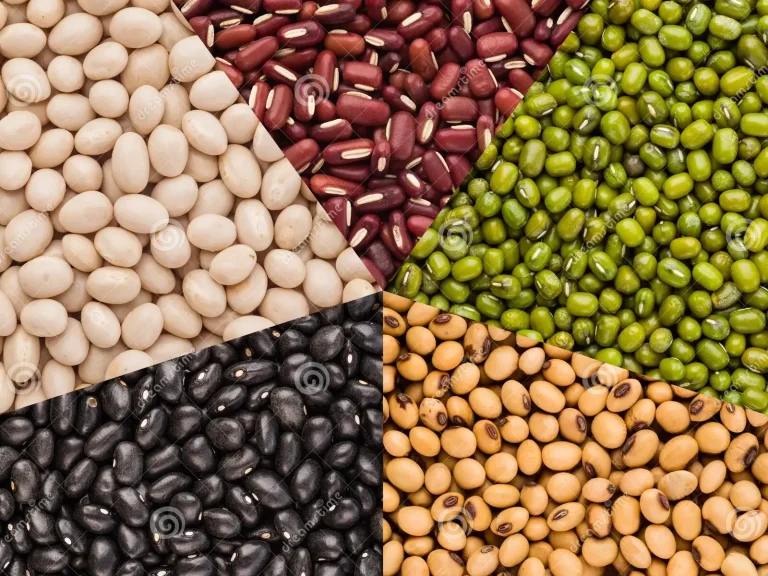Beans
Beans are classified into two types: "pole beans" and "bush beans." Pole beans, which climb similarly to vines, need support structures for proper growth and mature a bit more slowly. On the other hand, bush beans grow closer to the ground, do not need any support, and develop more quickly, allowing some farmers to harvest multiple bush bean crops within a single growing season.
Lima Beans
The lima bean, a legume variety, is recognized for its gentle flavor, smooth texture, and distinctive color palette, ranging from beige to green. It's also referred to as the butter bean, double bean, or wax bean.
Lima beans can be consumed at both immature and mature phases of growth. They are available in a variety of forms, including dried, frozen, or canned.
Not only are lima beans delicious and adaptable, but they are also packed with nutrients and associated with numerous health benefits. Consuming these protein-rich legumes may contribute to healthy weight management, better blood sugar regulation, and enhanced cardiovascular health.
Green Beans
Green beans may help reduce the risk of heart diseases due to their high levels of flavonoids. Flavonoids are polyphenolic antioxidants commonly found in fruits and vegetables. Test subjects with high flavonoid levels experienced anti-thrombotic results, preventing blood clots in the arteries and veins. Cardiovascular diseases, heart attacks, and strokes are commonly caused by thrombotic activity, so the incorporation of green beans in your diet may help mitigate some of these conditions.

Kidney Beans
Kidney beans may help prevent or treat diseases by lowering blood pressure, cholesterol, and inflammation—key risk factors for heart disease. They may also hinder the growth of colon cancer cells and help regulate blood sugar levels in diabetes patients.
In terms of metabolism and energy, kidney beans are packed with protein, complex carbohydrates, and fiber, aiding in muscle mass maintenance, energy production, and gut health. They are also rich in essential vitamins and minerals like folate, iron, potassium, and magnesium, vital for metabolic processes.
For those looking to lose or maintain weight, kidney beans are beneficial due to their low calorie and fat content, yet high in fiber and protein, which promotes satiety and reduces appetite. Their low glycemic index prevents blood sugar spikes, potentially curbing fat storage and hunger, while their resistant starch content may boost fat burning and suppress appetite.
As a nutritional powerhouse, kidney beans provide essential plant-based protein necessary for tissue repair, hormone regulation, and immune function. Their high fiber content supports digestive health, cholesterol management, and fullness. They are also an excellent source of folate, crucial for DNA synthesis, cell division, and fetal development, along with iron for oxygen transport and anemia prevention, potassium for fluid balance and blood pressure, and antioxidants for cellular protection against oxidative stress and inflammation.
Pinto Beans
Pinto beans are an excellent source of protein, fiber, vitamins and minerals. They may offer benefits for your blood sugars and heart, and can may also help lower your chronic disease risk if they don’t have sugar or salt add-ons.
We need your consent to load the translations
We use a third-party service to translate the website content that may collect data about your activity. Please review the details in the privacy policy and accept the service to view the translations.

